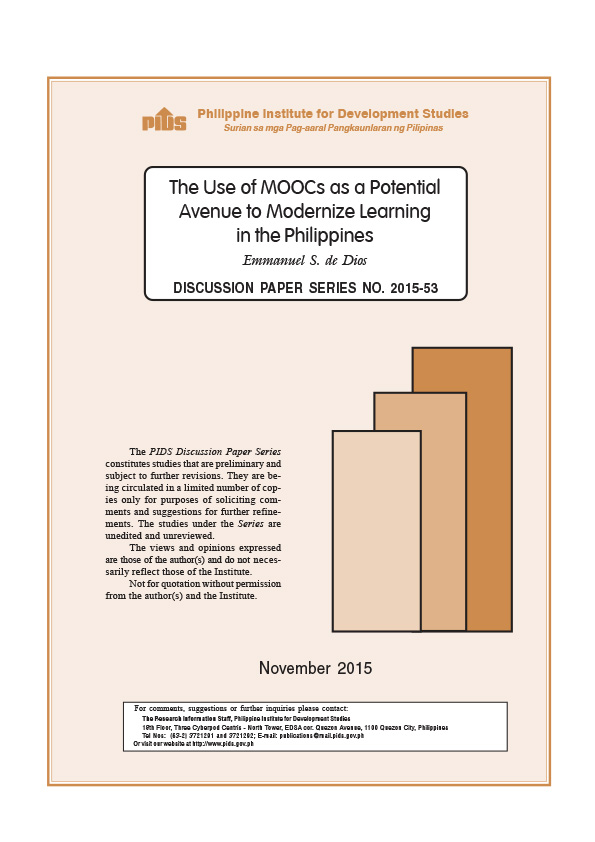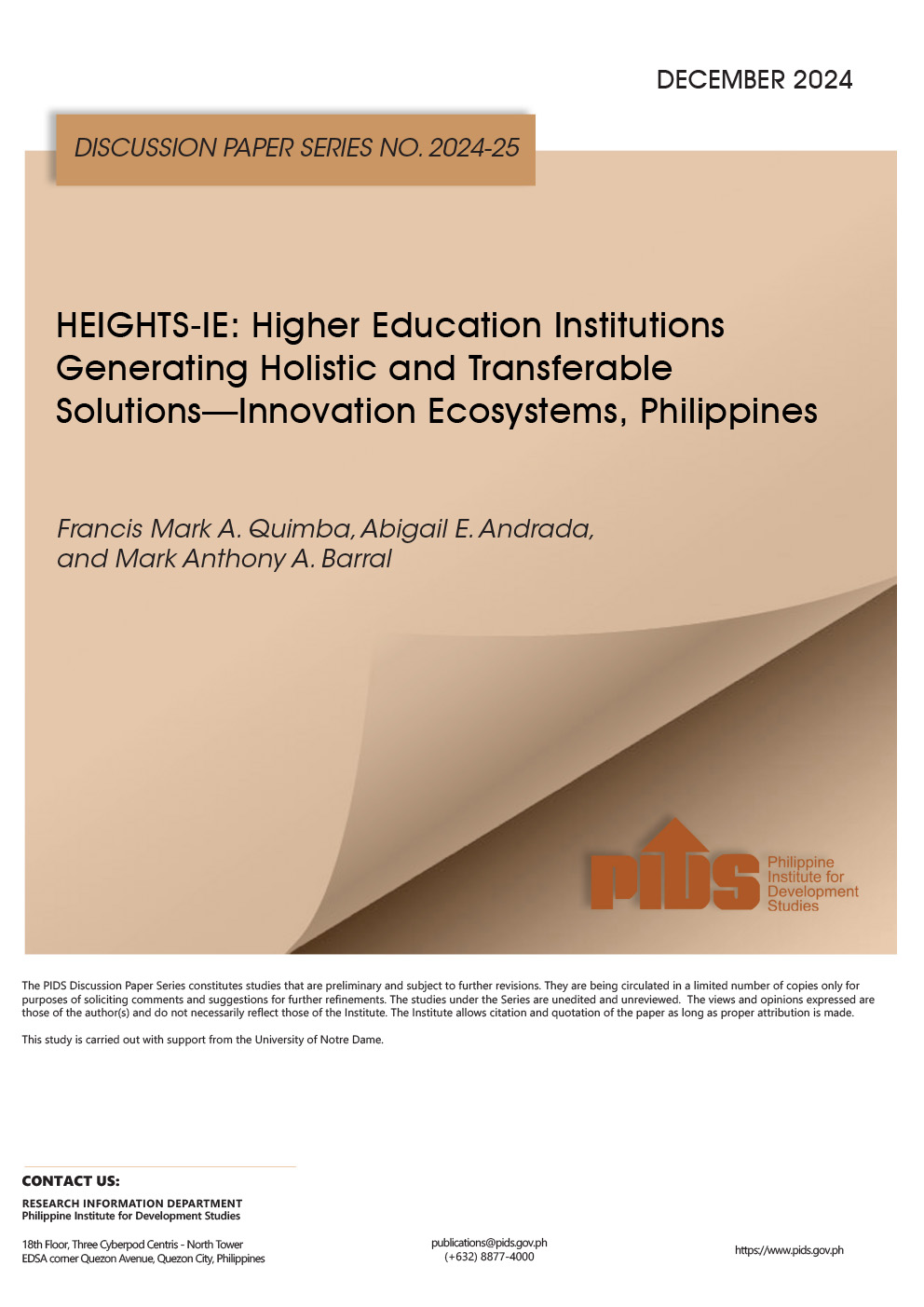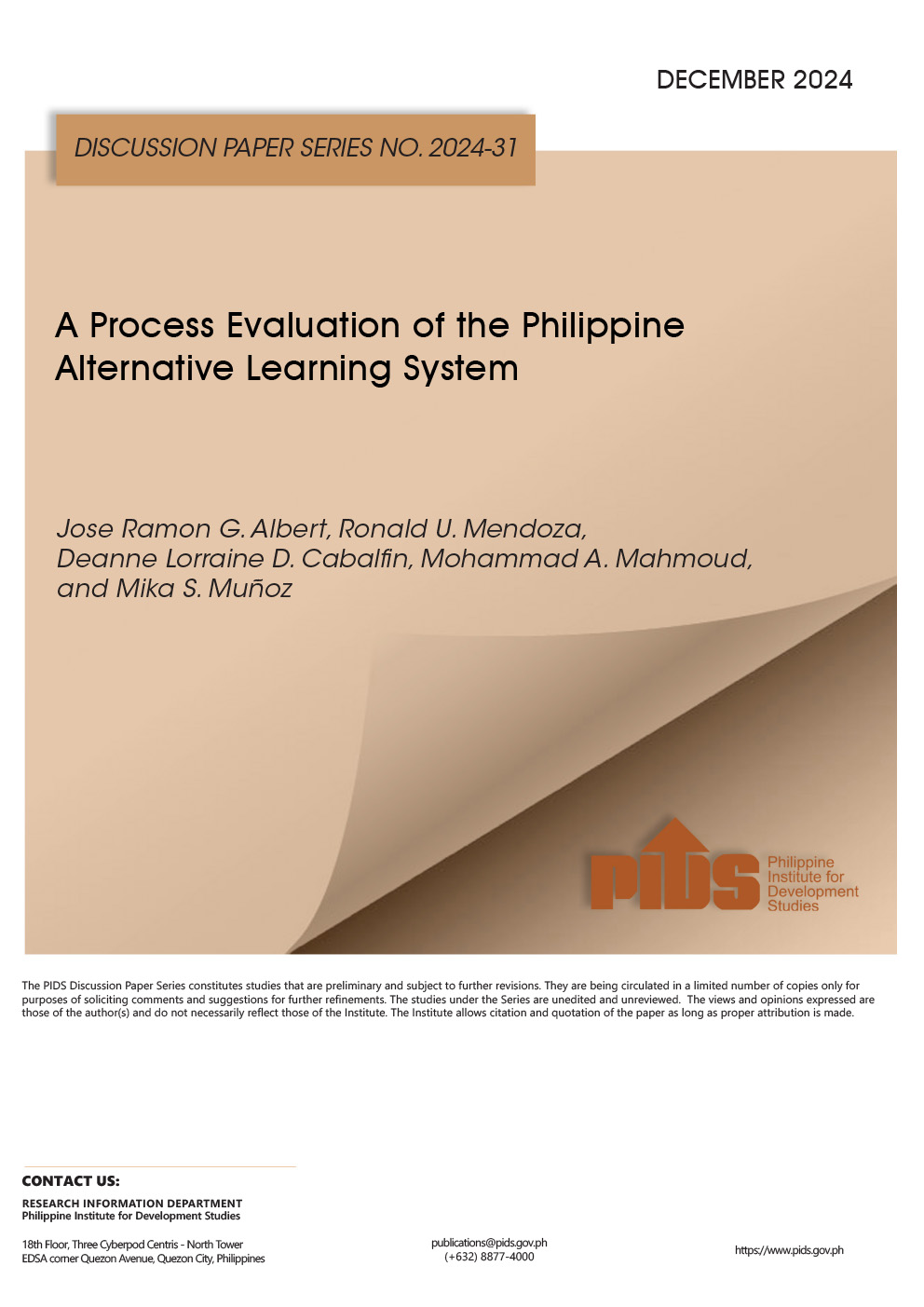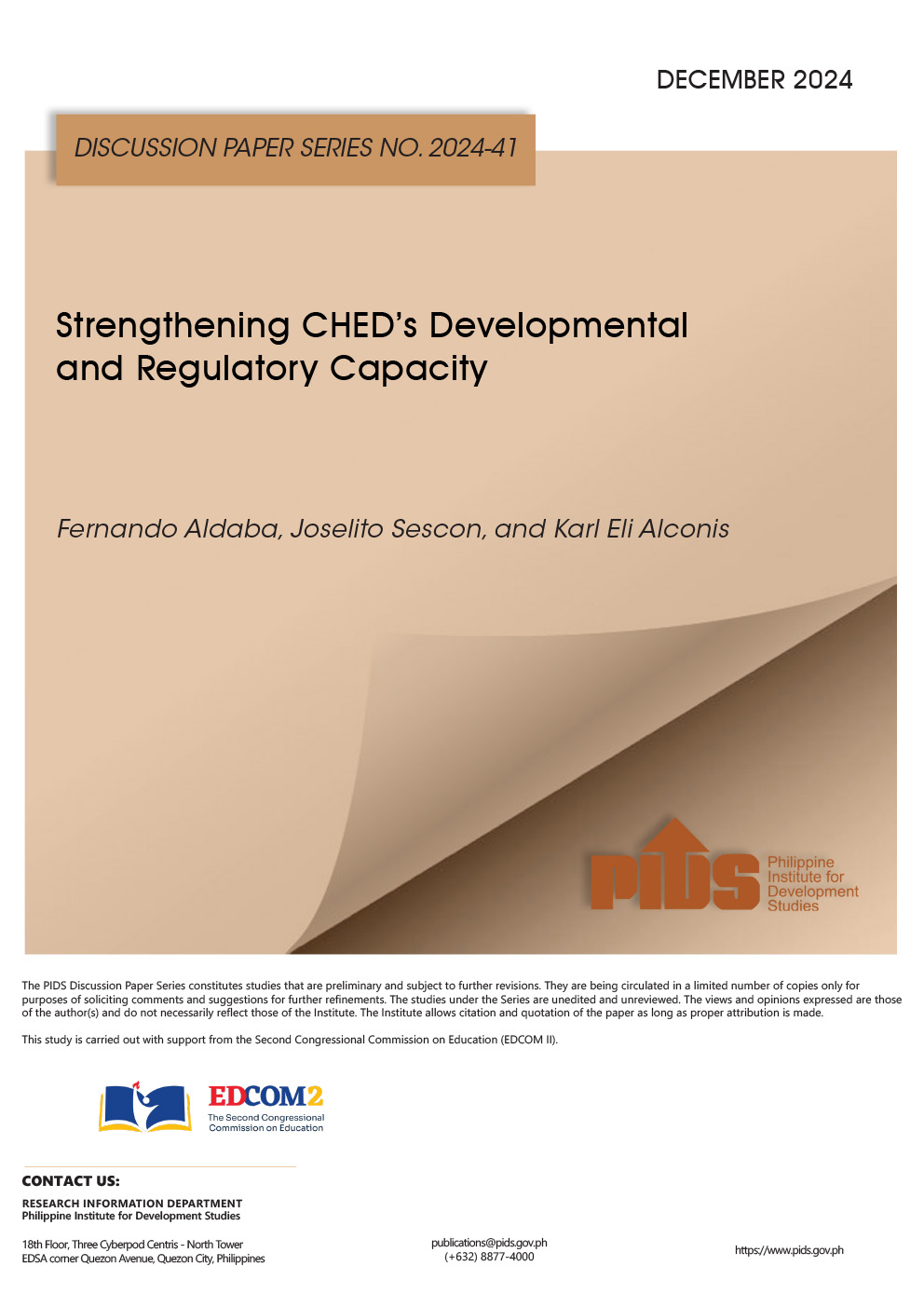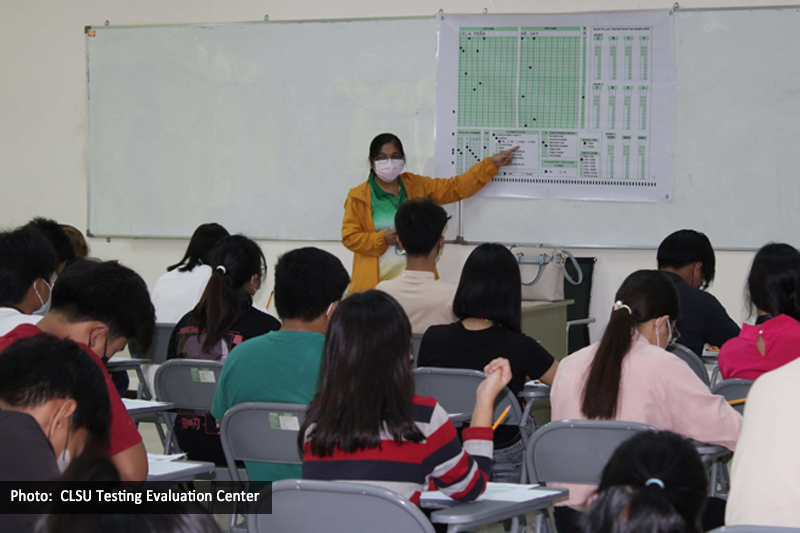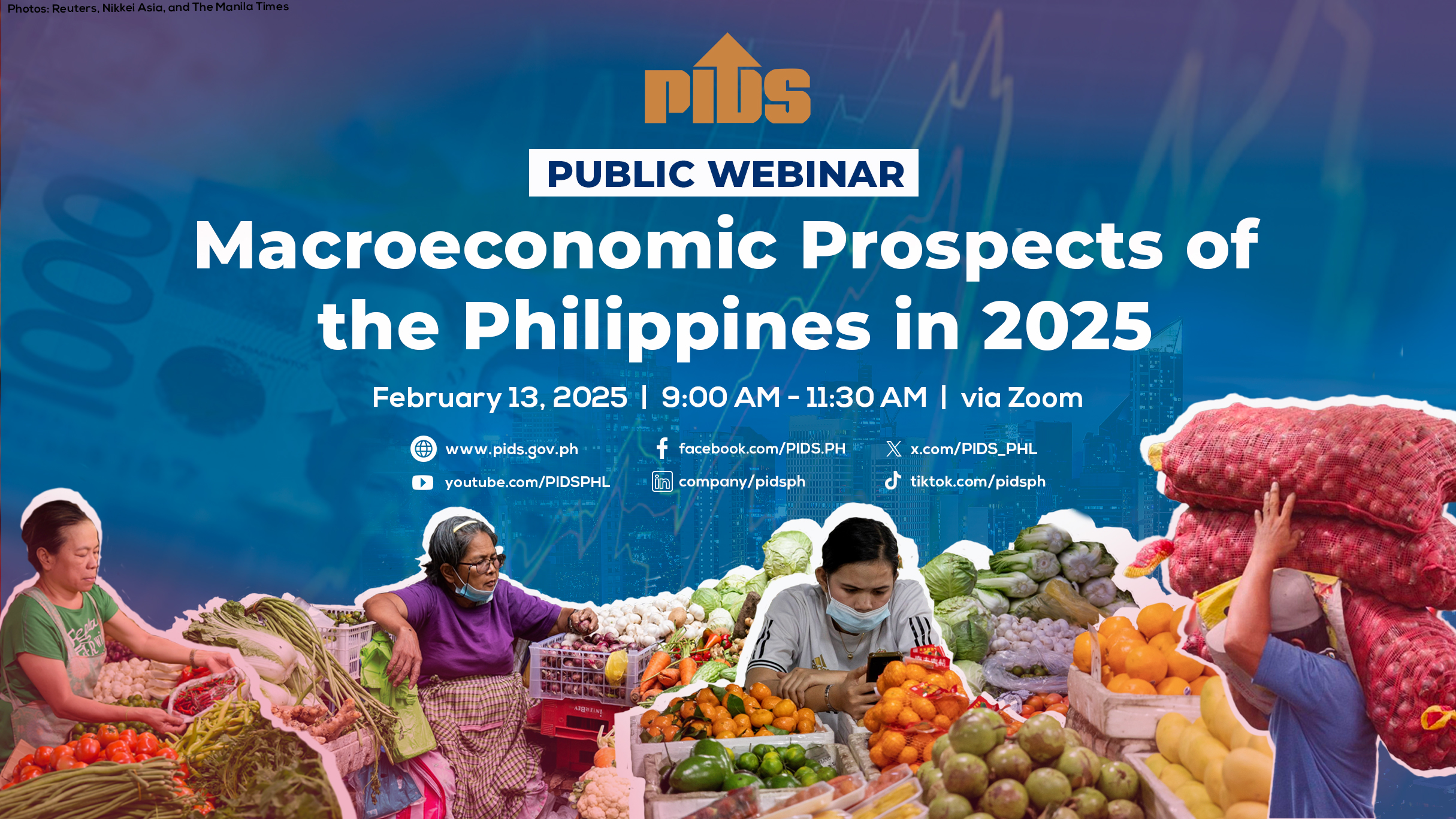A framework is proposed for understanding the potential value added of massive open online courses (MOOCs) along the lines of curation, credentialing, and cost. MOOCs are likely to appeal differently to universities depending on their current standard and desired goals. Institutions of a higher standard may be interested in MOOCs primarily as a means of reducing costs and possibly redirecting resources to research or graduate teaching. Universities of a lesser standard, on the other hand, may use MOOCs as a means of improving or augmenting curation, though perhaps at a higher cost. Factors that hinder or promote the adoption of MOOCs are identified that allow realistic expectations to be set regarding the role of MOOCs in Philippine education in the near term. Public policies and private sector initiatives to achieve these expectations are suggested.

